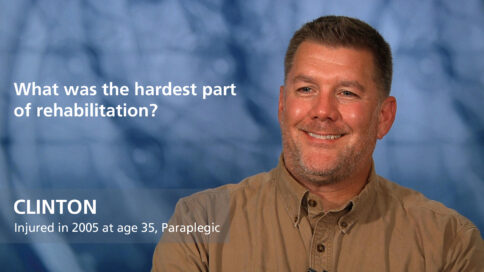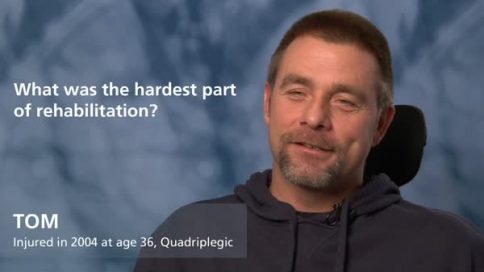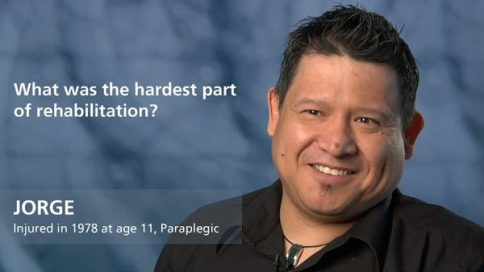How do you help patients with a spinal cord injury overcome resistance to rehabilitation? - Laura Tuck, PsyD
|
|
How do you help patients with a spinal cord injury overcome resistance to rehabilitation? |
|
Laura Tuck, PsyDPsychologist, Memphis VA Medical Center |
||
| Read Bio | More Videos by Laura Tuck | |
|
Share |
||
Transcript
When people are having difficulty with rehab, there’s often a reason why. We don’t want to assume that it’s some behavioral problem, or that somebody might be difficult to work with because underneath that there’s typically some sort of fear or worry, and I think it’s important to have good rapport with the patients. So you’ll need to discuss any barriers to care. It might be something very simple as the time of day, or it could be based upon fear of moving. It’s important that we openly talk about these aspects so that we can modify them or address them as needed. I think it’s important that we have a team approach, so that we understand why the patient isn’t ready, as much as they’re willing to engage in that conversation at that point in time, and having the different disciplines come in and maybe have a team meeting—hear from the patient where they’re at, and then use what’s called “motivational interviewing”. So it’s a form of communication where we’re eliciting from the person their own reasons to change, or move in a direction of healthy behavior at their own speed. And making sure that we’re all at the same place, and we understand any concerns that might be going on, so that we can pace with the individual. Making sure that they understand that window of care—that some things, especially with nerves, are very time oriented—so that we can continue to make gains. As long as we’re providing that information and the patient is able to make their own decisions, I feel like we’re at a good point.
Show Less|
|
||
add
How do you help patients with a spinal cord injury overcome resistance to rehabilitation? |
||
Laura Tuck, PsyDPsychologist, Memphis VA Medical Center |
More Videos by Laura Tuck | |
| Transcriptadd | share | |
When people are having difficulty with rehab, there’s often a reason why. We don’t want to assume that it’s some behavioral problem, or that somebody might be difficult to work with because underneath that there’s typically some sort of fear or worry, and I think it’s important to have good rapport with the patients. So you’ll need to discuss any barriers to care. It might be something very simple as the time of day, or it could be based upon fear of moving. It’s important that we openly talk about these aspects so that we can modify them or address them as needed. I think it’s important that we have a team approach, so that we understand why the patient isn’t ready, as much as they’re willing to engage in that conversation at that point in time, and having the different disciplines come in and maybe have a team meeting—hear from the patient where they’re at, and then use what’s called “motivational interviewing”. So it’s a form of communication where we’re eliciting from the person their own reasons to change, or move in a direction of healthy behavior at their own speed. And making sure that we’re all at the same place, and we understand any concerns that might be going on, so that we can pace with the individual. Making sure that they understand that window of care—that some things, especially with nerves, are very time oriented—so that we can continue to make gains. As long as we’re providing that information and the patient is able to make their own decisions, I feel like we’re at a good point.






































